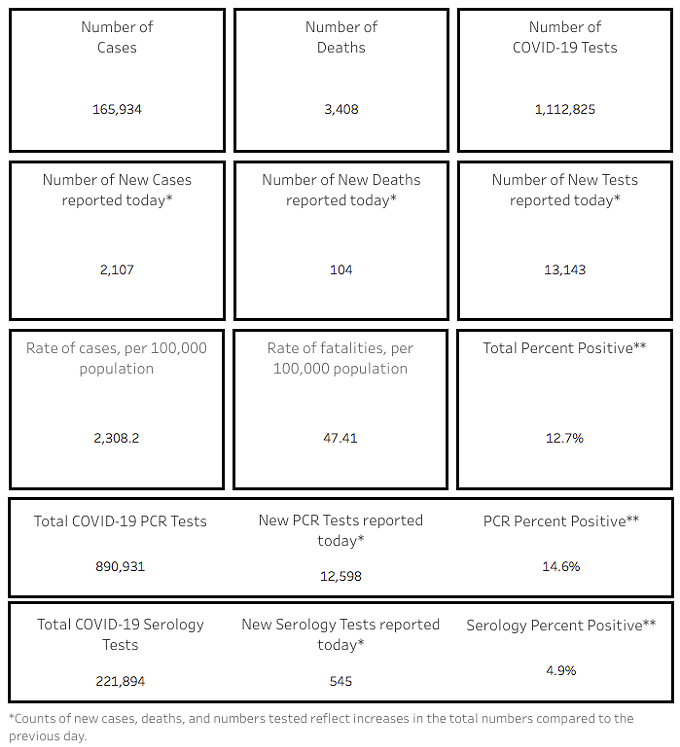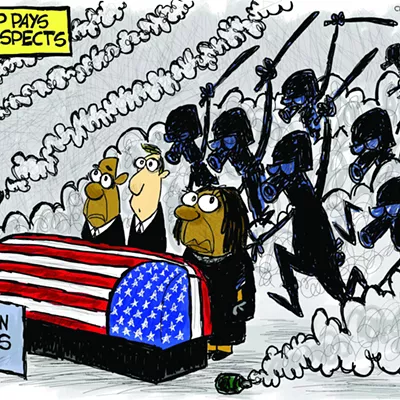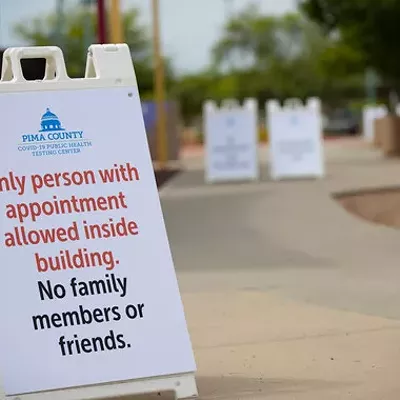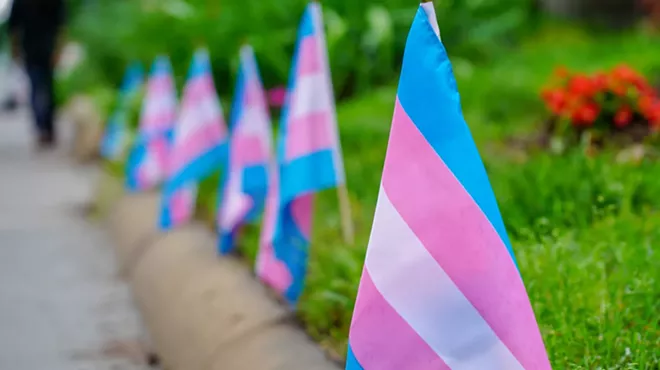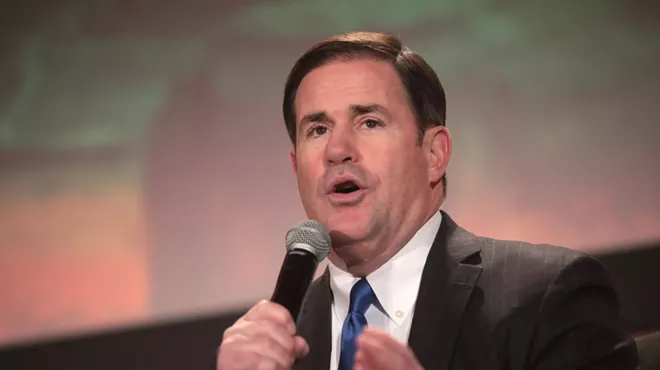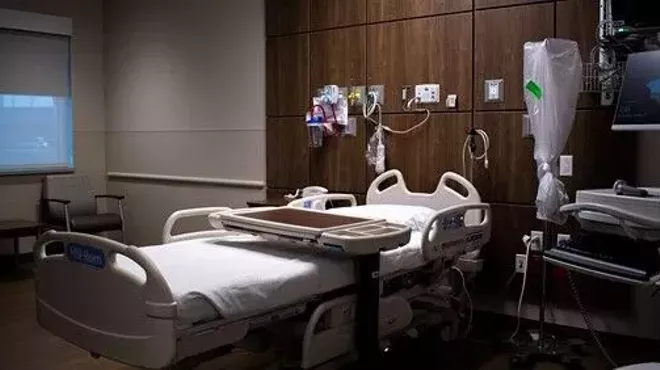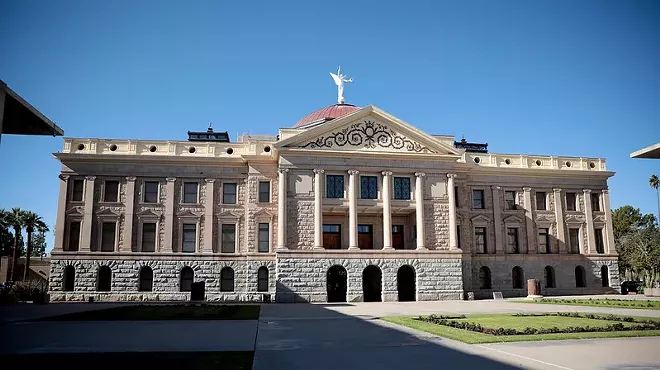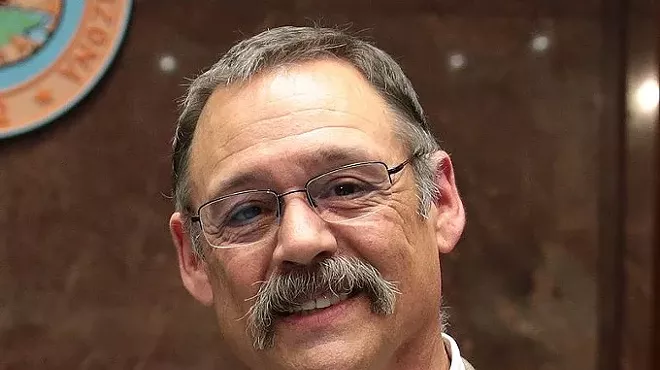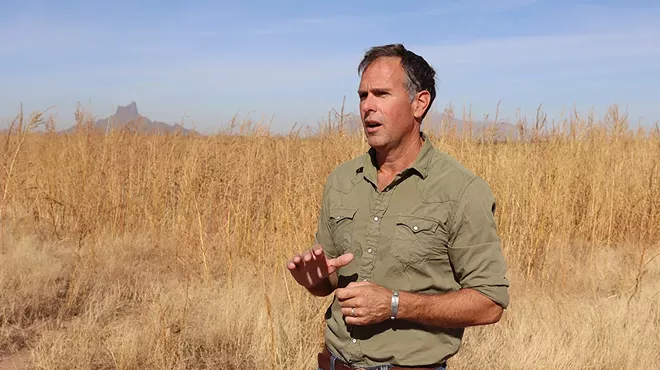Tuesday, July 28, 2020
Your Southern AZ COVID-19 Roundup for Tuesday, July 28: Confirmed Cases Close in on 166K; Fewer People in Hospitals; Pima County Opening Northside Testing Center Tomorrow; Vaccine Trials Underway Here
The total number of confirmed coronavirus cases in Arizona climbed past 165,000 as of Tuesday, July 28, after the state reported 2,107 new cases this morning, according to the Arizona Department of Health Services.
Pima County had seen 15,292 of the state's 165,934 confirmed cases.
A total of 3,408 people have died after contracting the virus, including 431 in Pima County.
Maricopa County had 111,446 of the state's cases.
Hospitals remain under pressure, although they report a slight decrease in the number of Arizonans hospitalized with COVID-19-related symptoms. The report shows that 2,564 COVID patients were hospitalized yesterday in the state, down from a peak of 3,517 on July 13. That’s the lowest number of hospitalized COViD patients since June 24, when 2,453 people were in hospital beds.
A total of 1,158 people visited ERs yesterday with COVID symptoms, the lowest that number has dipped since June 29, when 1,077 people sought help in ERs for COVID symptoms. That number peaked at 2,008 on July 7.
A total of 814 COVID-19 patients were in ICU beds yesterday, the lowest number since July 3, when 796 COVID patients were in ICU. The number of COVID patients in ICUs peaked at 970 on July 13.
COVID’S AZ SPREAD MAY BE ON DECLINE
With a drop in the total number of cases on a week-to-week basis along with declining hospitalizations, it appears Arizona’s COVID spread may have reached a peak. But with flu season around the corner, there remains the possibility that the current trend could easily reverse.
Gov. Doug Ducey last week credited mask-wearing and steps to reduce the interaction of people in large groups had resulted in some positive signs regarding the spread of the virus. While he once again sidestepped an opportunity to pass a statewide mask mandate, he did roll out TV commercials featuring a boxer who wears a mask.
Ducey also extended the closure of nightclubs, gyms, movie theaters, waterparks, tubing operations, and some bars. The executive order pausing the operation of those businesses is up for review every two weeks.
While coronavirus cases may be on a slight downward trend in the state, Ducey urged Arizonans to stay vigilant by staying at home and wearing masks while practicing social distancing when out in public to continue the fight against the virus.
Ducey again warned the state still had a long road ahead in the fight against COVID-19.
We need to continue to be diligent,” Ducey said. “We can’t let up.”
NEW SCHOOL RULES
Ducey and State Superintendent of Public Instruction Kathy Hoffman announced last week that while school districts have to open up “learning centers” in schools by Aug. 17, they do not have to provide in-class instruction. Instead, the schools can open up for students who need a place to go during the day but offer all-online courses, as Tucson Unified School District announced it would do earlier this month.
Ducey said he agreed with Hoffman’s plan to use metrics regarding the spread of the virus to determine whether schools are safe to reopen. The Arizona Department of Health Services is working with education leaders to develop the standards before Aug. 7.
Hoffman had proposed using metrics rather than a calendar date to determine whether schools could reopen safely. Her suggested metrics included a downward trajectory of confirmed new cases, a decrease in positivity rates in testing, and widespread availability of tests.
Public health experts have been warning that community transmission is too widespread to safely open the schools as planned.
Local school districts are planning a mix of "distance learning" online instruction and in-school instruction when school starts next month. Unlike in spring, when schools moved online following spring break, districts are planning stricter instructional time designed to mirror traditional in-person classes.
UA MOVING FORWARD WITH OPENING CAMPUS
University of Arizona President Robert Robbins said last week that UA would offer a mix of in-person and online classes beginning this fall.
The university will be offering a mix of four types of classes: in-person, which will physical distancing and mandated face coverings; flex in-person, which will include both in-class and online instruction; live online, in which students virtually engage with an instructor in real-time on their computers; and iCourses, which students can complete independently through the schools D2L system.
Robbins said he anticipated that between faculty, staff, and students, there would be about 20,000 people on campus, rather than the usual 60,000 that fall semester would bring.
Students, staff, and faculty will have access to a mix of tests, including PCR tests to determine if they have COVID-19 and antibody tests to determine if they have had it in the past.
"There are no risk-free options in return to our campus. Our plan is informed by international and national experts, including Dr. Carmona, who has for years had expertise in virology managing public health emergencies and other types of crises," Robbins said. "Our faculty and staff remain our greatest asset, in addition to our students, and I am confident that our broad capabilities, contributions, and resilience will enable us to weather this period and emerge even stronger than we are today."
MORE COVID-19 AND ANTIBODY TESTING AVAILABLE
The Pima County Health Department announced yesterday that it would open a second testing center on Wednesday, July 29. The free saliva testing for COVID-19 at the Ellie Towne Flowing Wells Community Center, 1660 W. Ruthrauff Road, requires pre-registration and is conducted by Arizona State University in partnership with the Arizona Department of Health Services.
PCHD continues to offer free COVID-19 testing via nasal swabs at the Kino Event Center by appointment only.
To register for a test, go to pima.gov/covid19testing.
Pima County continues to run a free COVID-19 testing site at Kino Event Center and is working on plans to open a third testing center at Udall Park on the City of Tucson’s east side.
Pima County has also contracted with Maximus Health & Services, Inc. to boost contact tracing efforts in the region. Maximus is an outsourcing company that provides business support to government health agencies such as the Pima County Health Department. They will hire about 150 local residents to perform “extensive” contact tracing as directed by the health department, in order to “alert, educate and isolate” individuals who have come in close contact with a person who is COVID-19 positive. This partnership will dramatically expand its current contact tracing system, at a time when Arizona is experiencing a rapid increase in COVID-19 cases.
“One of the key components of our response to this outbreak that has been difficult to ramp us has been the hours and hours of people power it takes to do this type of work and the systems it takes to support that staff,” said Health Department Director Dr. Theresa Cullen in a statement. “We look forward to being able to quickly take advantage of the experience, capacity, and planning Maximus will be able to provide.”
Pima County will pay $10 million to Maximus for a six-month contract, which has “multiple extension options” in three-month increments that will allow the county to reduce or expand the scope of the contact tracing system as needed.
Meanwhile, Pima County is one of several regions in the country where a new COVID-19 vaccine is being tested. The National Institutes of Health is conducting phase 3 trials on a vaccine co-developed by Moderna, Inc. and the National Insitute of Allergy and Infectious Diseases.
“I am hopeful that the phase 3 clinical announced will be an effective way to protect Americans from the wrath of COVID-19, and I am pleased that the National Institutes for Health has selected a diverse location like Pima County as one of the sites for this vaccine trial,” said U.S. Rep. Raúl M. Grijalva. “Latinos are being hospitalized at four times the rate of white people, and we’ve seen in communities across the country that Black, Latino, and Native individuals are more likely to contract severe cases of COVID-19 and ultimately succumb to it. These vaccine trials are an important step toward ensuring that we can quickly develop a safe, effective vaccine to stop the spread of COVID-19, keep our communities safe, and get back to some semblance of normalcy. It’s essential that diverse individuals are included in the trial so that we can ensure an appropriate response across the board.”
If you’re interested in volunteering, visit www.coronaviruspreventionnetwork.org or ClinicalTrials.gov and search identifier NCT04470427 to find a study center.
The University of Arizona and the State of Arizona have expanded their free COVID-19 antibody testing program to include 15 new categories of essential workers considered at high risk for exposure. The antibody test, developed by researchers at UA Health Sciences, determines who has been exposed to and developed an immune response against COVID-19.
In addition to healthcare workers and first responders, the following workers are eligible for antibody testing:
-Educators
-Child care workers
-Agriculture, grocery and foodservice workers
-Hospitality employees
-Solid waste collection workers
-Transportation services workers
-Members of the National Guard
More information and registration for the test is available at covid19antibodytesting.arizona.edu.
Along with the expanded testing, UA is also launching a $7.7 million yearlong study funded by the CDC to identify "patterns of COVID-19 immunity over time in previously and newly infected individuals." The research team is seeking 4,000 health care workers, first responders, and other frontline workers as participants in the study, who will participate in weekly COVID-19 surveillance and quarterly antibody testing.
DUCEY TO DC: EXTEND UNEMPLOYMENT INSURANCE
Senate Republicans rolled out a new $1 trillion federal aid package and have until their next summer vacation begins on Friday to complete the details and work out a deal with the U.S. House of Representatives, which passed a $3 trillion package earlier this year. Republican senators and the White House have been at odds as to what to include. Last week, the extra $600 a week in Federal Pandemic Unemployment Compensation that out-of-work Arizonans had been receiving expired.
Gov. Ducey last week asked Arizona's congressional delegation to consider a number of provisions to help Arizona in the latest coronavirus package, including an extension of extra money for people who are out of work as a result of the pandemic.
"We understand the concerns from businesses that are having difficulty rehiring employees when the government pays more in unemployment benefits compared to what they were paying their former employees before the pandemic," Ducey wrote. "We are advocating that, at a minimum, individuals who continue to be impacted by the COVID-19 pandemic, be eligible to receive at least 100% of their weekly earnings that they were making prior to government intervention in their employers’ ability to stay open. It is by no fault of their own that certain businesses have a higher risk of transmission of COVID-19 and therefore are being required to close by the government, and we would advocate that those individuals continue to have extra support from the FPUC."
Ducey also asked the federal government to provide more money to Arizona's unemployment insurance fund; extend the December deadline for the state's tribes to spend their pandemic aid dollars; more funding for a program that helps low-income Arizonans pay utility bills that climb in the summer thanks to triple-digit temperatures; and special liability protection to shield healthcare workers, businesses and schools from lawsuits related to COVID-19.
For the week ending July 18, more than 22,000 Arizonans filed initial jobless claims, according to the latest figures from the U.S. Bureau of Labor.
More unhappy numbers show that nearly 350,000 Arizonans were unemployed in June, down from a high of 473,000 in April but still enough to put the state’s unemployment rate at 10 percent.
That’s a loss of nearly a quarter-million jobs compared to June 2019, according to the Arizona Office of Economic Opportunity.
The sectors hit hardest between April and June were restaurants, bars, hotels, and amusement attractions like movie theaters. Compared to 2019 tax collections in the final quarter of the fiscal year, restaurant and bar tax collections were down by 32 percent, lodging tax collections dropped by nearly 63 percent and amusement tax collections dropped by nearly 67 percent.


